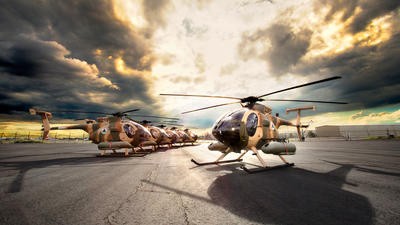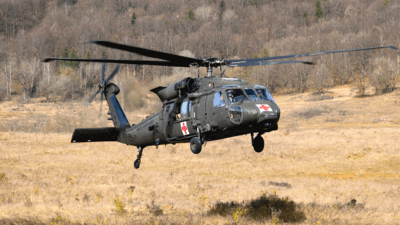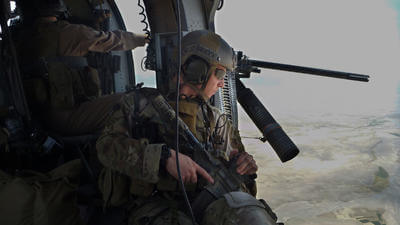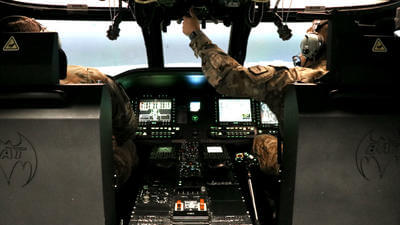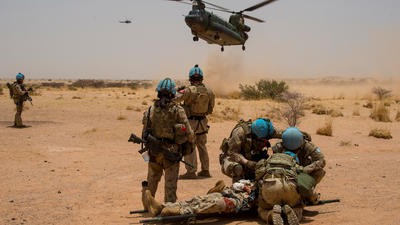Transitioning from military to civilian life
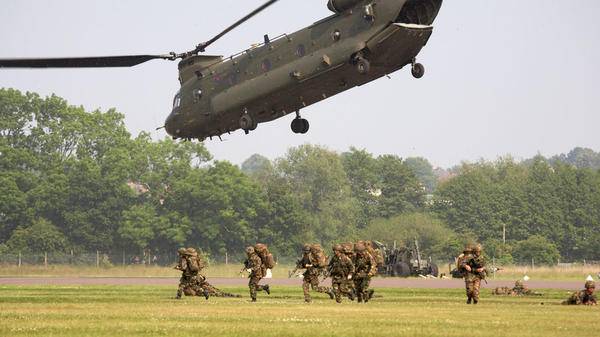
For many, making the transition from military to civilian life can prove difficult. Lauren Haigh spoke with pilots, search and rescue crew, and flight doctors who have undergone this changeover to learn of their first-hand experiences and discover the greatest challenges they faced
The process of transitioning from military to civilian life can be fraught with challenges. According to figures from the Pew Research Center, 27 per cent of veterans say re-entry into civilian life was difficult for them. This is due, in part, to the military’s unique culture. According to Dr Walter Busuttil, who is Director of Research at Combat Stress, a key challenge for transitioning military personnel comes with leaving behind a way of life to which they have become accustomed. “The biggest challenge for former servicemen and women is that, due to having served in the military for many years, they may have become institutionalized and almost dependent on this very organized system and way of life,” he explained. “Some may even be children of service personnel themselves, and this could be the first time that they’ve ever been in a truly civilian environment.”
Indeed, although civilian and military life share similarities, they are ultimately very different ways of life and, therefore, making the transition necessitates adapting and learning new skills, as Cory Armstrong, Rear Crew SME / Business Development US, Bluedrop Training and Simulation, articulates: “The military is all I have known throughout my adult life. Learning a new career and adapting to family life without the military are the two biggest challenges,” he told AirMed&Rescue.
Learning a new career and adapting to family life without the military are the two biggest challenges
Combat Stress provides specialist treatment and support for veterans and is an example of an important resource for military personnel making the transition to civilian life. Preparations should begin as early as possible to ensure a smooth transition, says Dr Busuttil: “Ideally, preparation for leaving the military should start the minute people join the military. This could be done by making training more relevant to civilian life and ensuring more qualifications are recognized beyond the military, as well as by encouraging better integration with local civilian communities.”
By all accounts, the support and assistance available to those making the transition has improved over the years. “I left active duty many years ago, and transition assistance has improved a lot since that time,” former marine Todd Thompson confirmed.
Choosing a specialty after life in the military
Thompson is currently a nurse in the IT space and went from marine infantry to emergency medical services, to nurse, and flight nurse in the first half of his career. When he left the military, he struggled to know which path to follow in the civilian world. “Before I left the military, we had to attend some rather generic presentations meant to familiarize us with available options and resources to make that jump,” he said. “I was leaving the military out of the infantry, and most of my peers went into civilian law enforcement, a few into fire service, and a few with immediate plans to return to college. I knew enough to know I needed to return to college, but had no idea what academic path I would choose.” His first job out of the military was laying sod on campus over the summer before fall semester started. “Admittedly, I was not good at selling myself, nor translating my experience or the ‘soft skills’ I had learned in the military,” he said.
Similarly, Charles (CJ) Bezak left the military during a period of uncertainty. It was late 2008 during a major recession and he was told by one of his officers at his unit that he ‘would be back’. He told AirMed&Rescue more about this experience: “I couldn’t help think to myself that if his job was to be a leader and manager that ultimately helps fund, train and equip me to execute our mission, how badly he had failed if after all this time I was somehow unprepared for the civilian world, and that I would fail so badly I would be back,” he said. Bezak is now Director of TacMed, VxL Enterprises, which provides operational medical support and training, and points out that many of his peers are also incredibly successful. “My peer groups during my tenure now collectively earn millions of dollars a year in wages beyond their wildest dreams from what the military provided and, more importantly, have more free time with their families,” he stated.

The importance of preparation for leaving the military
Nowadays, when it comes to leaving the military, the support available and preparations in place are arguably better than they ever have been, but it seems that proactivity and preparedness are key when making the transition, with a strong level of accountability and the need for individuals to make their own preparations and appropriately apply the skills they have acquired.
Many important skills beside flying skills are learned while in the military
Scott Bateman, who is now an Airbus A350 Pilot, underwent thorough and effectual preparations, as he recounts: “As I was nearing the end of my service, I spent the last 24 months of it preparing for life outside of the ‘military bubble’. Whilst serving, it is very easy to become isolated from the outside job market and get a false impression of the challenges of competing for every single role,” he told AirMed&Rescue. “I spent a significant amount of time identifying roles that would match my existing skills and expectations when I left the service. Where there were gaps, I used the military resettlement system (a financial grant) to get training or experience to allow me to increase my competitiveness.”
Manuel Guillen, the AW139 Lead Instructor for COPTERSAFETY OY, also took matters into his own hands, as he recounts, but considers his military experience invaluable: “While in the Spanish Air Force, I studied to get my commercial and air transport helicopter license to be ready for the civilian market. In my opinion, the best preparation I could get is the Air Force experience itself. Many important skills beside flying skills are learned while in the military.”
Similarly, Armstrong began preparations early and to great success: “Once I knew I would be transitioning, I began to take time off to network at different defense industry trade shows. The US Army offers a great opportunity to intern for a company while you finish your transition,” he explained. “This must be agreed upon by both the company and your command. Through this agreement, the army still pays your salary while you gain experience through the company at no cost to the company.” The financial support afforded by the military in the form of grants and salaries enables transitioning military personnel to provide for themselves during a potentially difficult period. “They even now let some people leave the military a few months early to intern at local companies and the military continues to pay the member with full benefits,” said Bezak. “This can really help with the timing and doesn’t put any risk on the employer, who sees it as a great way to transition a soon-to-be veteran into the workforce.”
Bill Sivewright, CEO of the UK’s Dorset and Somerset Air Ambulance, believes the military resources available are ample, but felt he lacked the time to take full advantage of them. “I felt that the resources / programmes were more than adequate. What was more difficult was making the time to take advantage of them. In part, that was because I was leaving the service from an extremely busy job. I encouraged everyone to take advantage of all that the Transition Partnership offered them. However, I felt guilty taking time off to focus on me; after 34 years it seemed such an alien concept,” he told AirMed&Rescue.
Expanding options for training during military services
However, many believe that there is still room for improvement in the support offered for integration into civilian life. Thompson shares his point of view on this: “Programs and resources exist today that are far better than in the past. Having said that, there is always room for improvement. I recently tried Google’s Jobs for Veterans tool, which initially starts with submitting your military speciality code. The first local job it recommended was as a delivery person for a speciality cookie company. So, there is some work to be done there,” he said. “Veteran charities and veteran-owned businesses do a fantastic job in outreach and letting vets know they are welcome and even sought out. However, as military leaders and veterans, we must make a concerted effort to ensure our teammates take the initiative and truly understand how to make the transition work for them as individuals.” Bezak agrees that there is room for improvement: “I think the current consensus is that these programs are still inadequate based on talking to friends who are now getting out and still seem to be a little lost on the process and next steps and especially on how challenging the job market can be,” he told AirMed&Rescue.
For Armstrong, the issue is not with the availability of programs, but rather their accessibility. “There are many programs both through the military as well as other non-profit civilian organizations for transitioning military members. The gap I see is the knowledge of these programs to the average soldier,” he stated. “Soldiers must go and find these programs so many are not aware that they exist.” This again highlights the necessity of proactiveness, and the emphasis placed on the individual seeking out support.
Unbreakable bonds between comrades in military positions
A common challenge that arises when transitioning from the military to civilian life involves leaving the camaraderie of the military behind, and this is an element that is commonly missed by ex-servicemen and women. “The military is a community of people who just happen to work together, and within most civilian roles, it is just a job. I miss the camaraderie of the military and that feeling of belonging to something much larger,” Bateman told AirMed&Rescue.
This can prove to be a culture shock for some, as Combat Stress’s Dr Busuttil highlights: “Veterans will automatically expect to be part of a team, but teamwork in a civilian workplace setting is far different to the levels of support and 24/7 camaraderie of the military.” Armstrong agrees: “The part that I miss the most is being with my men and women. Having that bond is like nothing else.” Thompson, too, thinks the camaraderie is a highly prized aspect of the military: “Like most, I miss the camaraderie, the shared mission and values,” he said. Thompson also said that another factor he misses is the clear expectations that are laid out for success and promotion in the military. “The civilian world often has a much fuzzier view of the who, how and when,” he stated.
The current global uncertainty has impacted most business sectors, and the military is isolated from this uncertainty
Dr Busuttil reiterated this, highlighting a key difference between military and civilian culture: “Things are less regimented and timely, there are differences in hierarchy and respect, and civilians are unable to relate to what military service entails.” Bateman has experienced this uncertainty firsthand: “I miss the stability of knowing I will have a job on Monday. The current global uncertainty has impacted most business sectors, and the military is isolated from this uncertainty. It would be nice to have that surety in the civilian sector.”

Ultimately, and more or less unanimously, the skills and experiences acquired during military service prove to be invaluable in civilian life and many ex-service personnel have overcome challenges and experienced substantial success in civilian life.
“After about seven years working for various air medical programs, I decided to leverage my huge network and start my own aviation consultancy in 2015,” said Michael Benton, Founder and Managing Director, VyClimb Consulting. “I am coming up on six years and going strong enough that my wife was able to quit her job as head of finance and strategy for a major helicopter completions company to work with me full time.”
Peter Möller, Chairman of the European Helicopter Association, also thanks his military career for the opportunities he has been afforded, which in part were facilitated by financial support. “The army aviation back in the 1980s provided solid training and I was able to gain about 2,000 flight hours within only four years of being an active army aviator which was a solid base to start my civilian career,” he told AirMed&Rescue. “Without the army I would have never been able to become a professional helicopter pilot due to missing financial resources.”
Military training means a stronger background for future employers
Guillen agrees that he wouldn’t be where he is today without his military experience, and can’t understate the importance of his military background. “They used to say back in the Air Force that the flight time in military aircrafts should be noted in the logbook as ‘golden hours’ and I couldn’t agree more. In my opinion, the flying part of the brain could be compared to the brain of a child in early development in a way, as the concepts you are taught remain and determine your behaviour for the rest of your life and career. The challenging training received at the beginning of your military career is designed eventually to get the best out of the pilots in a very short time,” he stated.
For Armstrong, a key life skill that the military imparts is management skills. “Everything from personal management to large projects,” he explained. “You develop those skills, and it allows you to think outside the box to find solutions.” For Bateman, too, his military experience has proven indispensable: “I am currently an Airbus A350 pilot for a major airline and I have achieved so much in my professional life and beyond. I think all of that stems from the structures and foundation that I was given in the military and the values that underpin them.”
Thompson told AirMed&Rescue that flexibility and adaptability were key skills afforded to him by his military experience. “The most transferable skills would have to be the abilities to relate to people of different backgrounds, working within or leading a team, adapting to changing priorities, and being able to comprehend the strategic versus tactical goals and how they relate to each other,” he said. For Bateman, important values were learned. “I think the military instilled in me a set of values and resulting behaviours that are a fantastic foundation for life and any role you may subsequently undertake in civilian life,” he said.
Ultimately, none of the people that AirMed&Rescue spoke with regret their time in the military. In fact, it is quite the opposite. “I was in the military for 15 years, so I do not collect any retirement / pension (generally speaking, in the US military, you need 20 years of service to qualify for retirement benefits) and I haven’t regretted any moment of it. I loved my military time and took full advantage of all the benefits, getting the foundation of my flight experience, as well as earning a bachelor’s and master’s degree. I even used my post-military education benefit to earn a second master’s,” said Benton. “I highly recommend the military route for young people to help them grow, mature, and get a strong start followed by a civilian career.” Armstrong, too, thanks his time in the military for his position in life today: “I do not think I would have reached where I am today without my military experience,” he said.
The military has had a lifelong impact ... laying strong foundations for civilian life and imparting important values and unique experiences
The positive impact of the military and valuable skills imparted cannot be underplayed. Thompson looks back fondly on his time in the military: “I saw and experienced things I can’t even afford to do now. There were friendships, lessons and experiences I will always have with me and that guide me to this day,” he recounts. For Guillen, his time in the Air Force was unforgettable and is a great source of pride: “There is not a working day without thinking how grateful I am for being so lucky to have belonged to the military. I am thankful and proud to have belonged to the Air Force. This is where everything started and the reason why I have been able to perform my duties as a pilot and to achieve my current situation. I would do it all again if I could.”

The military has had a lifelong impact on the servicemen that spoke to AirMed&Rescue, laying strong foundations for civilian life and imparting important values and unique experiences. “I loved my time in the Services and believe that it was the making of me. In my current role, I have rarely come across a situation where I could not lean on my military experience to find some parallel,” Sivewright articulates. Not only has the military instilled important skills, it has also left lasting memories. There are undoubtedly challenges faced when transitioning from military to civilian life but, with the right support and preparation, these can be successfully navigated, and organizations can provide a helping hand.
Although there may be limitations associated with the support provided to individuals and an onus on the individual to seek out support, the consensus seems to be that people leave the military with an impressive set of transferable skills that make them highly employable. “Employers are usually very keen to recruit former servicemen and women because they see them as highly trained, organized, efficient, polite, good timekeepers, and good leaders, as well as good workers who get the job done,” said Dr Busuttil. Despite the challenges, making the transition can prove rewarding and integration into civilian life is entirely possible. “You have to take the plunge out from under that safety net and time a good landing,” Bezak concludes.
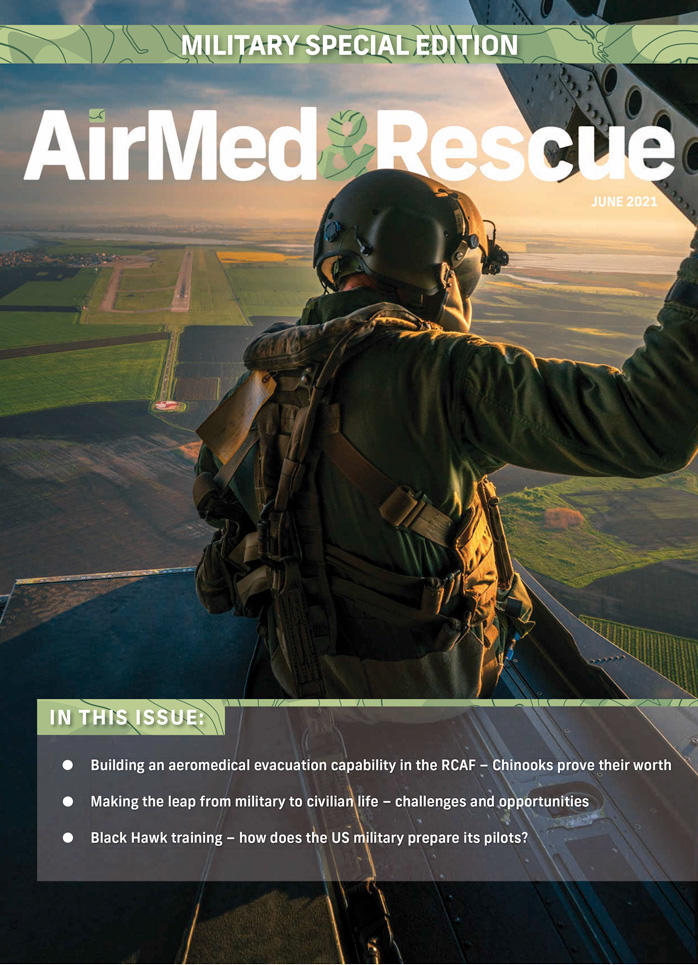
June 2021
Issue
In this issue:
- Building an aeromedical evacuation capability in the RCAF – Chinooks prove their worth
- Making the leap from military to civilian life – challenges and opportunities
- Black Hawk training – how does the US military prepares its pilots?
- Giving old aircraft a new lease of life as aerial firefighters
- Interviews: US Air Force PJs past and present; Dr Neville Vlok, HALO Aviation
- Provider Profile: Keewatin Air
Lauren Haigh
Lauren has worked in the publishing industry for eight years and reads and writes about healthcare, science and travel insurance on a daily basis. Her favourite aircraft is the plane from the title sequence of British educational children’s TV series Come Outside.

